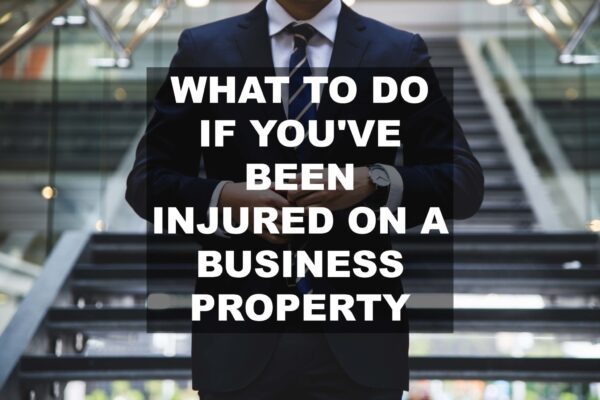
Businesses have an obligation to customers to provide a reasonably safe environment when they enter their shop or store. When failing to do so and a customer is injured on a business property due to negligence, the injured party may be able to present a lawsuit against the business for the resulting injuries. By law, business owners are required to provide adequate safety and do everything reasonably possible to make their properties safe and prevent any harm to customers.
Business Property Safety 101
Business owners must make their properties safe for customers, delivery people, visitors, and even their employees. If an injury occurs and the injured party is seeking compensation, then it must be established that there was a duty of care owed by the business to the injured party, that there was a breach of duty of care, and that injuries resulted directly caused by that breach. No hazardous conditions should exist on the premises of any business. If a hazard presents itself it should be corrected.
Floors, Entrances, Sidewalks, and Parking Lots
- Inspections and maintenance of the property should be conducted on a regular basis.
- Typical hazards that result in injuries on business properties are wet floors—one of the main causes of ‘slip, trip, and fall’ accidents. In areas that are slick, ‘Wet Floor’ signs should be posted for customers to clearly see.
- At entrances, during inclement weather, safety mats should be placed at the entrance for customers to wipe their shoes.
- In Maine, during the winter, after each storm, the ice and snow need to be removed in a reasonable amount of time and all walkways should be treated with sand or salt to prevent falls.
- Outside the entrance, all walkways should be kept cleared and in good shape free from holes, cracks and uneven surfaces.
- If there is a parking lot, it should be well lit, with parking spaces clearly marked, and the lot surface should be maintained with cracks sealed and potholes filled.
- After a winter storm, the lot needs to be plowed.
Within the Store
- There should be no physical obstacles at the entrance or in the aisles.
- Doors should not jam or stick, but allow customers easy access in and out of the store on foot, wheelchair, stroller or walker.
- Shelves or racks should be free of any sharp-edged objects, and merchandise should not be improperly stacked in such a way as to collapse and cause injury.
- No loose cords should be laid across the floor during business hours without pedestrian flow being rerouted.
What are the Most Common Injuries That Happen on a Business Property?
Common injuries that do occur on a business property are usually the result of one or more of the above. Slip and fall accidents on slippery, hard surfaces are the most frequent. It can result in broken wrists or elbows, or head and neck injuries. Falling merchandise or other types of inventory can also cause head and neck injuries. Sharp objects protruding from racks, shopping carts, or on shelving and showcases can cause scrapes, puncture wounds, cuts, and/or lacerations that require stitches. Faulty doors can slam into a hand, arm, head or face, and cause injury. Walkways and parking lots poorly maintained, or crumbling from age, or covered in snow or ice are sure signs of a slip and fall accident waiting to happen.
Who’s at Fault?
In Maine, if you are injured on a business property and file a claim, you must be able to prove that the business was more than 50% at fault for your injury. The amount of compensation you receive is proportionate to the fault assessed by the judge. Therefore, in order to maximize your compensation you must be able to demonstrate that the business owner failed to provide a duty of reasonable care for the safety of customers. However, the court understands that not all injuries suffered by a customer in a store mean that the owner is wholly liable. There is no absolute measure to prevent all injuries. Each case is judged on the evidence to determine if a duty of reasonable care was provided to the customer.
Failing to fulfill a duty of care is referred to as a breach of duty. To prove a breach of duty one must first prove that a proper duty of care was not provided and, therefore, the breach caused harm that resulted in an injury. Harm can take many forms—pain and suffering from the slip and fall, medical bills, lost time and wages, and/or the inability to enjoy life’s pleasures in the same way as prior to the injury.
If you’ve been injured on a business property due to the owner’s negligence, and the injury has caused lost income, unwanted medical expenses, and disrupted your quality of life, contact the law offices of Hardy, Wolf & Downing for a free consultation and evaluation. Know your options and let Maine’s top personal injury lawyers seek justice for you.

